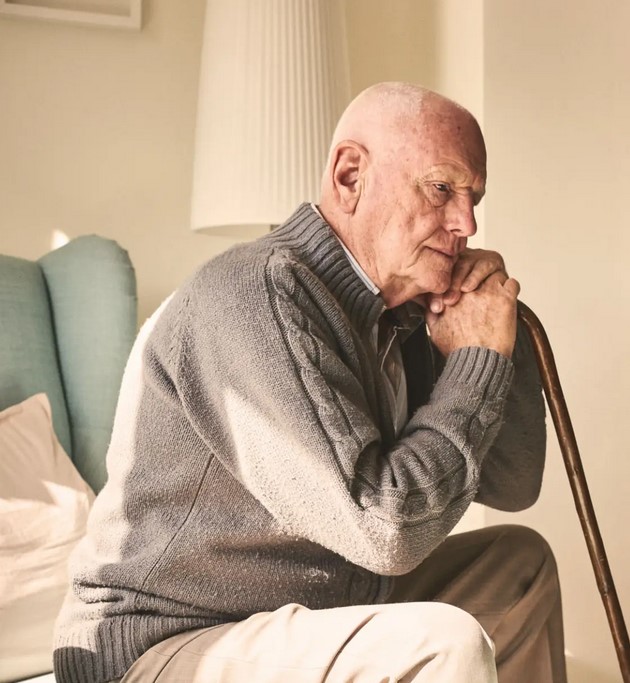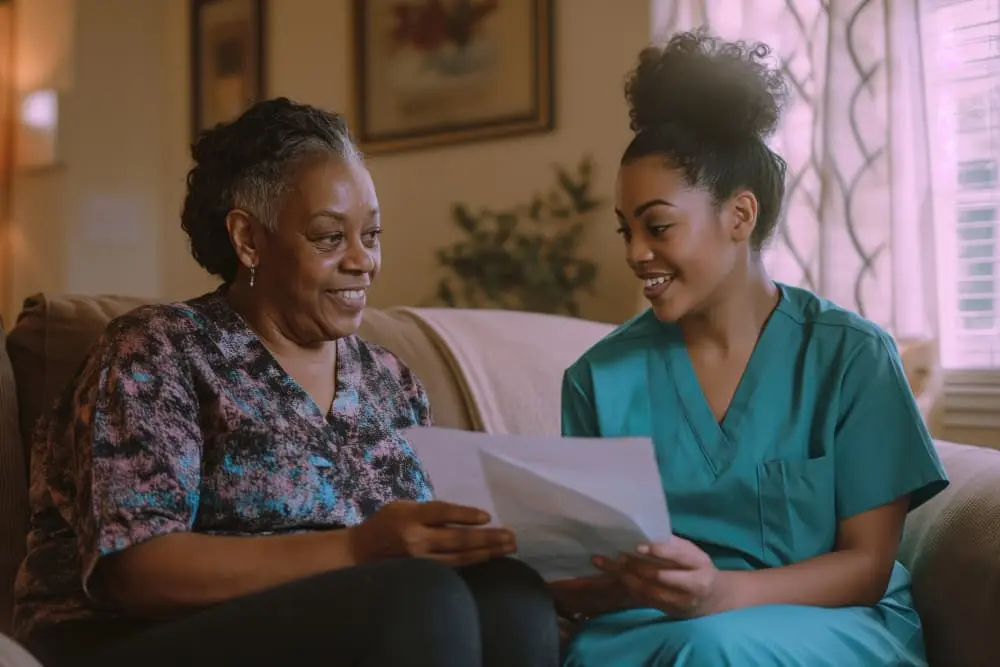It can be challenging to determine something is wrong if you don’t see the person you care for regularly. The next time you’re with your loved one, pay close attention. Is there evidence of behavioral changes? What about cognitive or physical declines? Here are what those signs might look like.
Behavioral Changes
The gradual changes you may see include:2
-
- Severe mood changes
-
- Withdrawing from things they used to enjoy
-
- Hiding things or thinking that other people are hiding their things
-
- Imagining things
-
- Leaving their home and getting lost
-
- Pacing
-
- Strange sexual behavior
-
- Hitting themselves or others
-
- Misunderstanding others
You might also notice the following:
-
- Their house appears unusually cluttered or dirty.
-
- They keep expired groceries.
-
- They have lost interest in their favorite activities.
-
- Their sleeping patterns have changed.
-
- They forget to take their medications frequently and miss appointments.
-
- They are late in paying bills or having stacks of unopened mail.
Cognitive Decline
If you’re worried that your loved one is experiencing cognitive decline, look out for signs like:
-
- Loss of reasoning skills
-
- General confusion
-
- Difficulty keeping track of time, appointments, or medications
-
- Excessive forgetfulness
-
- Memory loss
Those signs could also signal a more serious decline, such as Alzheimer’s disease, one of the most common causes of dementia among older adults. The loss of thinking, remembering, learning, reasoning, and behavioral abilities in dementia disrupts daily life and function.
Physical Changes
Upon first glance, several physical signs can let you know your loved one is struggling. Changes include:
Poor personal hygiene, such as loss of grooming habits, wearing the same outfit over and over, or donning disheveled or dirty clothes
Weight loss or difficulty eating or drinking
Difficulty standing, sitting, walking, or moving around
Bruises or injuries, which could indicate a fall or incident they are too embarrassed to share with you
Poor personal hygiene, such as loss of grooming habits, wearing the same outfit over and over, or donning disheveled or dirty clothes
Types of In-Home Senior Care
Different warning signs sometimes require different levels of care. Perhaps your loved one is mentally astute but needs help with physical tasks such as housekeeping, meal prep, and transportation. Or they may need someone who can offer companionship when you’re not around.
Here are a few examples of home care services that can help:
- Household tasks: Errands, housekeeping, and meal preparation
- Personal care: Bathing and dressing
- Feeding: Cooking at home or delivering meals
- Money management: Filling out forms and checking bill payments
There are also home healthcare services available. Healthcare providers, such as nurses, therapists, or home health aides, provide those services, such as:Speech, physical, and occupational therapy
- Administering medications
- Nursing
- Recovery from illnesses or injuries
You may need to pay for home services yourself. Sometimes, health insurance or government programs such as Medicare, Medicaid, Older Americans Act, and the Veterans Administration cover those services.6 You may also be able to find free or donated community services.
How To Approach the Topic of In-Home Senior Care
“In my experience, people may be hesitant to have people come into their home to help,” said Dr. Reckrey. “They’ve already figured out a way to cope with their problems, whatever they may be, so it can be a difficult conversation.”
However, it is still an important discussion because you don’t want to make any decisions about your loved one’s well-being without consulting them first, if possible.
“Determine if there’s an opening, if there’s anything they think they might need help with. Start small, like offering them someone to help with laundry [as opposed to bathing or something more personal],” suggested Dr. Reckrey. “There can be a lot of fear that someone coming into the home will take away their independence, so be sure to explain that it will actually bring out more freedom for them,” such as being able to grocery shop for themselves again or be driven to events with friends.
Frame in-home senior care as a way to help you, the caregiver, recommended Dr. Reckrey. You might say, “I’m doing this for me. I need help with these things to ensure you’re OK because I can’t be there to help.”
“When in-home care works, it’s not only filling a gap, it’s creating a meaningful relationship, and I think it’s a positive thing,” said Dr. Reckrey. “What works for one family may not work for everyone. It’s a relationship, and you want everyone to be comfortable and communicate and work together. You may not find the right person the first time, but that doesn’t mean in-home senior care won’t work; it just means you need a better fit.”
How To Find the Right Caregiver
Once you’ve decided what type of care is right for the person you care for—talking to a healthcare provider can help with that process—you will need to find the right caregiver. If you go for the home care services route, some services can match you with a caregiver to watch after your loved one.
If a retirement or nursing home is the next step, research establishments near you and ask for referrals from friends, family, and trusted medical experts in your community. Your local Area Agency on Aging (AAA)—a public or private non-profit agency coordinating services for older adults—is another resource.7
When you find some options for in-home healthcare agencies, consider the following:
- Qualifications: How long has the agency been open? Is it an approved Medicare provider? Do they have the right licenses and certifications? What sort of training does the staff receive?
- Services: Will the agency prepare and update a care plan? How will caregivers ensure confidentiality?
- Availability: Are staff members available whenever necessary? Is there on-call assistance?
- Cost: Is there financial assistance or a sliding fee schedule?
Make sure to interview the caregiver candidate and ask for their references and capabilities: For example, can they provide a wheelchair or other mobility assistance?
Once you’ve hired a caregiver, provide additional information about the person you care for, such as hobbies, interests, medications, allergies, and underlying conditions. Clearly state what qualities you want in a caregiver to create the best personality match. If you want any further information on best home care options, refer to this.
A Quick Review
As your parent or loved one ages, they may need help if they have behavioral or cognitive changes. Caring for older adults can be challenging, but in-home senior care can help. Consult a healthcare provider and insurance company about options












